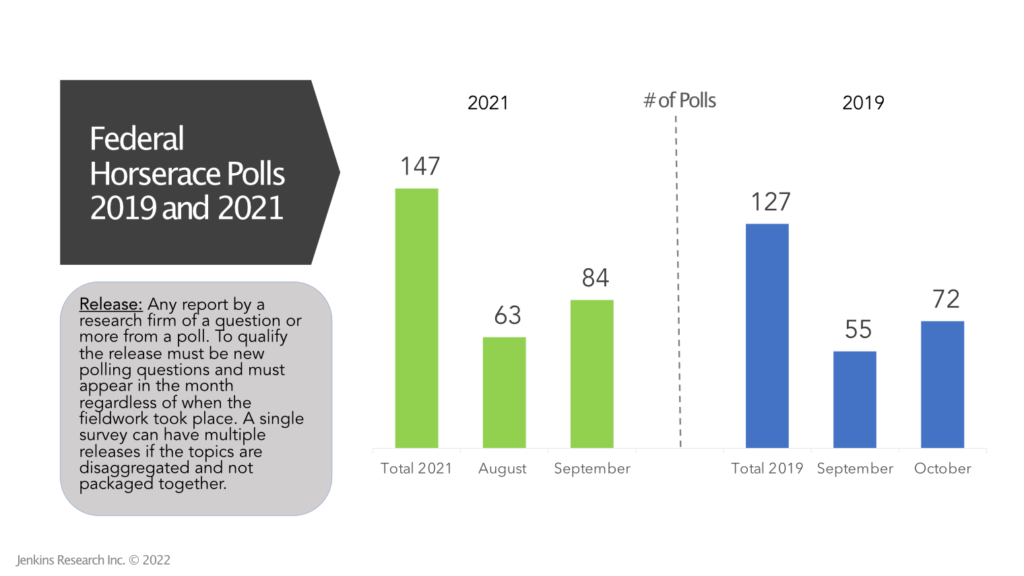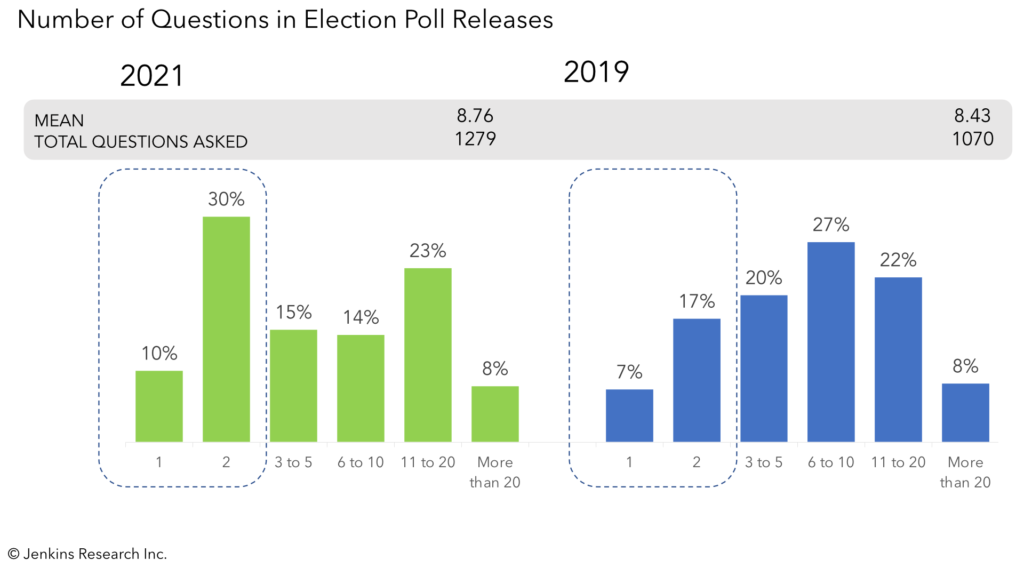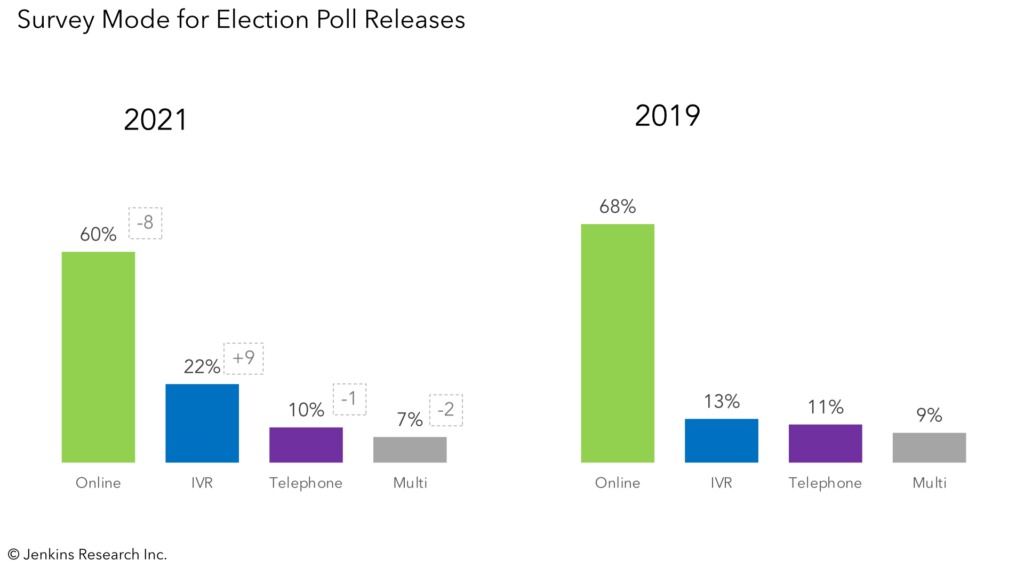
Although we do not have data going back before the 2019 federal election from the Public Polls Project, it seems fair to conclude that polls are becoming more rather than less important. At least in volume terms if not in actual impact.
In 2021 there were 147 public opinion releases in August and September. All of these releases were about the party competition leading up and during the campaign. In comparison, in 2019 there were 127 polls in the 2019 election. A not insignificant 15.7 per cent increase.
It should be noted that the same methodology was used to capture poll data. Of particular note, for firms that did daily tracking, we treated each 3-4 day interval that had new data as a single survey. That means that data can only be counted once as being new.

Election Polls: Role and Impact
Election polls have always been controversial. Are they voter aids? Do they detract from the sober reflection democracy needs? Is strategic voting a good or bad thing? Is a voter’s strategic voting calculus helped or hindered by pre-election polls?
The goal here is not to answer these questions but they serve as a backdrop to the findings. We are also not going to discuss poll accuracy. For a discussion of poll accuracy in 2021, see Éric Grenier’s analysis.
Fifteen organizations published at least one election poll in 2021. Although some of the names changed, this is unchanged from 2019.
Questions Asked in Election Polls
The 147 releases were based on a staggering 1279 questions. Of course many of these questions were the same question asked by a different firm or at a different time. There was a 19.5% increase in the number of questions asked in 2021.
The chart below shows that the average number of questions per election poll was 8.76. This is up from 2019 (8.43) but not dramatically. The average hides a key difference between the two elections. In 2021, 40% of election polls only had 1 or 2 questions. Only 24% of polls in 2019 were only one or two questions. Of course, a poll with only 1 or 2 questions is basically jus a horserace poll.
Why then are the averages so close if so many polls in 2021 were so short? The answer is that in 2021, there were many more very long polls. For example, the average number of questions for a survey that had more than 20 questions was 26.3 in 2019 but 36.9 in 2021. Many polls were short but long was were really long.

A Quick Observation on Mode
Online is the most used research mode for public releases. In 2021, 81% of all releases were completed using online surveys. For elections, online is also the most used (60% in 2021). Here, however, IVR and multi-mode surveys are more common than they are outside of elections.

Summary and Implications
The 2019 and 2021 federal elections were hotly contested. The closeness of the races (both ended in minority Parliament’s) may partially explain the high number of polls. It is a little unsatisfactory as an explanation, however, as the number of non-election polls has also risen.
Nevertheless, Canadians have more access now than ever before to what other Canadians think. Of course, most of that information is national or provincial/regional at best. It is hard to base strategic considerations on election polls at this level.
What is clear though is that 2021 was defined by two distinct trends. More, arguably superficial, horserace polls. And, more long in-depth surveys. It is not clear that the more in-depth surveys cut-through all the noise of the horserace. What do you think?
Richard Jenkins developed the Public Polls Project. He holds the copyright and ownership of the data and all analysis.
The database of public polls includes all public opinion releases since April 1, 2016. Each release is an independent public announcement of a question or more from a public opinion poll. For more information visit the Public Polls Project.
Photo by Owen Farmer on Unsplash